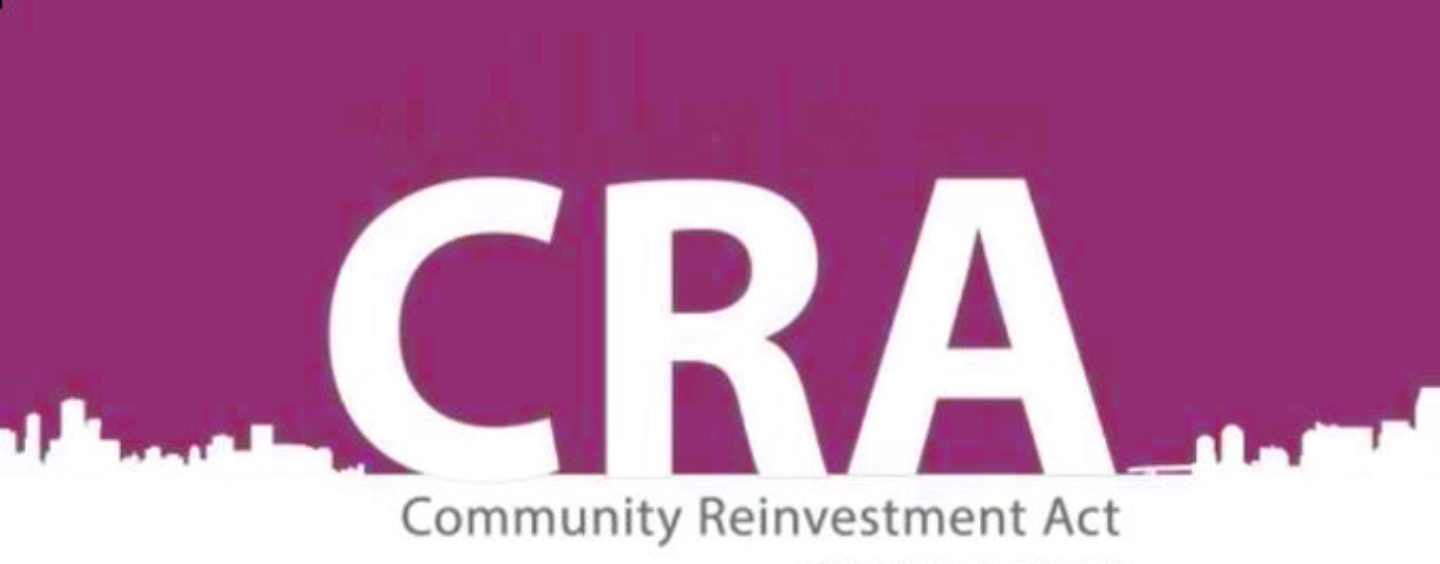
Community Reinvestment Act Encourages Banks to Meet Credit Needs of Their Communities
by Kathy Grear 01/29/2018The Community Reinvestment Act (CRA), enacted by Congress in 1977 (12 U.S.C. 2901) and implemented by Regulations 12 CFR parts 25, 228, 345, and 195, is intended to encourage depository institutions to help meet the credit needs of the communities in which they operate. In this section of the web site, you can find out more about the regulation and its interpretation and information on CRA examinations.
Enforcement
The Community Reinvestment Act of 1977 sought to address discrimination in loans made to individuals and businesses from low and moderate-income neighborhoods. The Act mandates that all banking institutions that receive Federal Deposit Insurance Corporation (FDIC) insurance be evaluated by Federal banking agencies to determine if the bank offers credit (in a manner consistent with safe and sound operation as per Section 802(b) and Section 804(1)) in all communities in which they are chartered to do business. The law does not list specific criteria for evaluating the performance of financial institutions. Rather, it directs that the evaluation process should accommodate the situation and context of each individual institution. Federal regulations dictate agency conduct in evaluating a bank’s compliance in five performance areas, comprising twelve assessment factors. This examination culminates in a rating and a written report that becomes part of the supervisory record for that bank.
The law, however, emphasizes that an institution’s CRA activities should be undertaken in a safe and sound manner, and does not require institutions to make high-risk loans that may bring losses to the institution. An institution’s CRA compliance record is taken into account by the banking regulatory agencies when the institution seeks to expand through merger, acquisition or branching. The law does not mandate any other penalties for non-compliance with the CRA.
OCC Releases CRA Evaluations for 15 National Banks and Federal Savings Associations
The Office of the Comptroller of the Currency (OCC) today released a list of Community Reinvestment Act (CRA) performance evaluations that became public during the period of December 1, 2017 through December 31, 2017. The list contains only national banks, federal savings associations, and insured federal branches of foreign banks that have received ratings. The possible ratings are outstanding, satisfactory, needs to improve, and substantial noncompliance.
Of the 15 evaluations made public this month, 14 are rated satisfactory and one is rated need to improve.
The OCC’s Web site (https://www.occ.gov) also offers access to a searchable list of all public CRA evaluations. Copies of the evaluations may also be obtained by submitting a request electronically through the OCC’s Freedom of Information Act (FOIA) Web site https://foia-pal.occ.gov/palMain.aspx or by writing to the Office of the Comptroller of the Currency, Communications Division, Suite 3E-218, Washington, DC 20219. When requests are made electronically, remember to include your postal mail address.
Community Reinvestment Act (CRA)
The Community Reinvestment Act of 1977 (CRA) provides a framework for financial institutions, state and local governments, and community organizations to jointly promote banking services to all members of a community. In a nutshell, the CRA
- Prohibits redlining (denying or increasing the cost of banking to residents of racially defined neighborhoods), and
- Encourages efforts to meet the credit needs of all community members, including residents of low- and moderate-income neighborhoods.
For more information, see:
- Questions and Answers about CRA Exams, Procedures, and OCC’s Responsibilities
- Federal Financial Institutions Examination Council (FFIEC)
- Joint Public Hearings on the Community Reinvestment Act Regulations
Database Search
CRA Database Search: Ratings and Performance Evaluations
Search national bank CRA ratings and performance evaluations and get lists of banks examined for CRA compliance.
Resources
Examination Schedule
Get a list of banks scheduled for CRA examination in the next quarter.
Banks Operating Under Strategic Plans
Get a list of national banks operating under approved CRA strategic plans and a reference to the authorizing regulation.
Wholesale and Limited Purpose Banks
Get a list of banks designated as wholesale or limited purpose, definitions for these terms, and a reference to the authorizing regulation.
Interagency Questions and Answers
Get help interpreting the meaning and requirements of CRA from the Federal Financial Institutions Examination Council.
Freedom of Information Act (FOIA)
Learn how to submit or check on a FOIA request to the OCC and search documents.
How to Obtain Public Information about Banks
Get resources for information on national banks, savings and loans, state-charted banks, bank holding companies, credit unions, and savings and loans.
Background & Purpose
- The Community Reinvestment Act is intended to encourage depository institutions to help meet the credit needs of the communities in which they operate, including low- and moderate-income neighborhoods, consistent with safe and sound banking operations. It was enacted by the Congress in 1977 (12 U.S.C. 2901) and is implemented by Regulations 12 CFR parts 25, 228, 345, and 195. (See Regulation).
- The CRA requires that each insured depository institution’s record in helping meet the credit needs of its entire community be evaluated periodically. That record is taken into account in considering an institution’s application for deposit facilities, including mergers and acquisitions (See CRA Ratings). CRA examinations (see Exam Schedules) are conducted by the federal agencies that are responsible for supervising depository institutions: the Board of Governors of the Federal Reserve System (FRB), the Federal Deposit Insurance Corporation (FDIC), and the Office of the Comptroller of the Currency (OCC).
- Additional information in the form of Interagency Questions and Answers, Interagency Interpretive Letters, CRA data reporting is available.



No Comments so far
Jump into a conversationNo Comments Yet!
You can be the one to start a conversation.Only registered users can comment.